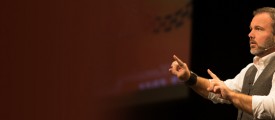By Rachel Thomas, Director of Discipleship for Women & Ministry Teams @MBCLoudoun
Why should we know Christ? If we have accepted the free gift of grace through Jesus’ death and resurrection, live a good and moral life, read our Bible every now and then on our own, pay attention enough during the sermon to recite facts about the Bible and who Jesus is, then we can pass as a Christian, right?
In Philippians 3:4-6 Paul says, “…If anyone else thinks he has reason for confidence in the flesh, I have more: circumcised on the eighth day, of the people of Israel, of the tribe of Benjamin, a Hebrew of Hebrews; as to the law, a Pharisee; as to zeal, a persecutor of the church; as to righteousness under the law, blameless.”
Paul gives us his “spiritual resume.” He has a pretty impressive one, too! Others saw him as impeccably religious. His righteousness was seen and acknowledged by all the important Jews of his day. He was found blameless! No matter what your involvement in the church—whether you are a discipleship group leader, head of the usher team, a member of the choir or part of a team flying around the world to serve on a mission trip in the slums—that is not what you should be known by. Those are all good things. Those are all important things. In fact, I depend heavily on my volunteers who serve faithfully and sacrificially! But religious activity is not the most important thing.
Paul continues in Philippians 3, “…but whatever gain I had, I counted as loss for the sake of Christ” (vs. 7).
This “loss” is damage or loss like you would file as an insurance claim after some sort of disaster or accident. Isn’t that a crazy picture of how some Christians live their lives today? They invest their good deeds and religious-ness in hopes that one day they can cash in for a return on their investment. Almost sounds like using the sacrifice of God’s Son as fire insurance to get out of hell free, doesn’t it? How sad! Paul counts this type of good behavior as a measurable, verifiable loss. What he once trusted in as religious assets, he now sees as liabilities, which got in the way of truly knowing Christ.
Paul continues in verse 8, “more than that, I count all things to be loss in view of the surpassing value of knowing Christ Jesus my Lord, for whom I have suffered the loss of all things, and count them but rubbish….” We need to lose ourselves. Our identity in people and positions. Our good deeds. Count it all as if it were in a can going to the curb on trash day, that we may gain Christ. He is enough. All our self-righteous deeds are worthless compared to knowing Christ.
What losses are you currently experiencing as you actively pursue knowing Christ? Do you truly consider knowing Him the most important thing in life? If we view Jesus as our Lord and Master, shouldn’t He have full control of our days? Our schedules? Our titles and identities?
We need to lose ourselves to be found in Christ, as Paul writes in verse 9. We must be so closely intertwined with Him that we cannot be separated. I’m not married, but have been a part of enough weddings that I feel like there should be some sort of “Frequent Bridesmaid” card that when you purchase a dozen dresses, you get one free (or at least half off!). My favorite line of the sacred wedding vows, “forsaking all others and being united forever,” chokes me up every single time. Matthew 19:6 commands, “What God has joined together, let no man separate.” This picture of marriage is a picture of the Gospel. If you are in Christ, God has joined you together with His Son so that you are one. The Father no longer sees just you or your sin, but Christ. There is no separation.
Knowing Christ is the most important thing in life. We don’t have to lose ourselves for nothing because Christ is everything. He is worth any suffering because He made the ultimate sacrifice for us.




